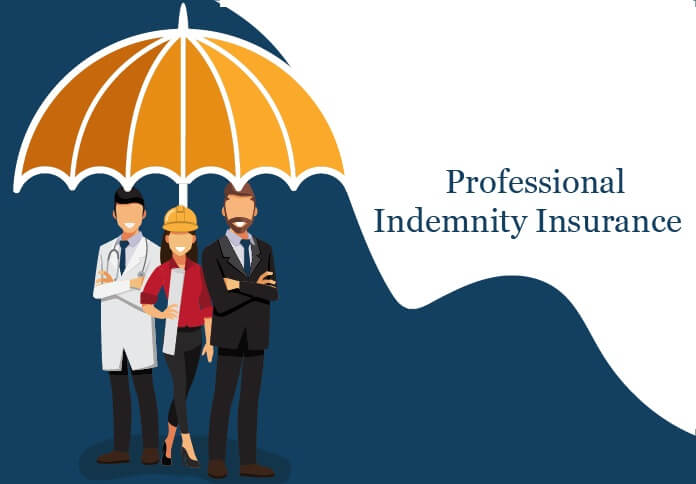How Can Different Industries Benefit from Professional Indemnity Insurance?
Mistakes happen across every industry and compensation claims can cost thousands. This is where professional indemnity insurance comes in handy. This type of PI insurance is designed to protect businesses or individuals from compensation claims made by clients following negligent service or incorrect advice. It can also cover breaches of confidentiality and copyright. It is utilised across many different industries and professions in the unfortunate event of being sued. Here are some examples of how selecting the right professional indemnity insurance policy can provide support in a professional setting.
Table of Contents
Professional Indemnity Insurance, often abbreviated as PI insurance, is a type of insurance coverage designed to protect professionals and their businesses from financial losses and legal liabilities arising from claims of professional negligence, errors, omissions, or malpractice. This insurance is particularly relevant for individuals and businesses that provide professional services or advice to clients.
What is the professional indemnity insurance?
What is generally covered by professional indemnity insurance?
Professional indemnity insurance typically covers the following:
- Claims of professional negligence, errors, or omissions.
- Financial losses suffered by clients due to professional mistakes or inadequate advice.
- Legal defense costs, including attorney fees and court expenses.
- Settlements or damages awarded by a court.
- Breach of duty, misrepresentation, or violations of professional standards.
- Retroactive coverage for past work (if included in the policy).
- Coverage tailored to the specific needs and risks of the profession.
Various Professions Covered:
PI insurance is not limited to a specific profession but is relevant to a wide range of professional services, including but not limited to:
- Legal services
- Medical and healthcare services
- Accounting and financial services
- Engineering and architecture
- IT consulting and technology services
- Real estate and property services
- Advertising and marketing services
- Consulting and advisory services
- Design and creative services
Healthcare professionals
In 2021/22, the NHS received 15,078 compensation claims. Professional indemnity insurance is in place to cover healthcare workers. Though modern medicine is making significant strides forwards, it still carries risks and mistakes do happen. In the case that medical staff fail to exercise reasonable skill and care, the right insurance can help.
All healthcare professionals, whether an organisation or individual, should ensure they are covered by a suitable insurance policy.
Lawyers
All practicing law firms legally require solicitors’ professional indemnity insurance. It enhances their security alongside protecting their clients. Providing incorrect advice or failing to act in the best interests of a client leaves individuals and firms open to negligence claims and liable to pay any financial losses incurred.
Professional indemnity insurance gives lawyers the peace of mind to focus solely on running their firms as any failings of professional advice will be in place effectively.
Architects

Architects can come acroos with a variety of planning, design and management risks during a construction project. The Architects Registration Board (ARB) states that every architect needs a minimum limit of indemnity of £250,000 and it must cover civil liability as well.
This offers the necessary protection against liability claims in the case of error or failure in the performance of professional duty. Claims can also arise if a client feels that the work is not reflective of what was in the original brief.
Consultant
Business consultancy encompasses a broad range of services and involves administering independent and specialist advice to support organisations. If your advice leads to financial loss for a client or someone injures themselves on work premises, professional indemnity insurance can provide protection.
This is of particular importance if you’re a freelancer. It is not a legal requirement to have this insurance, but it will give you and your clients greater confidence in your business practices.
Here are some key aspects of Professional Indemnity Insurance:
Coverage for Professional Negligence. PI insurance provides coverage when a professional is alleged to have made mistakes, errors, omissions. Or provided inadequate advice or services that result in financial losses or harm to a client. This includes claims of negligence, misrepresentation, breach of duty, or violations of professional standards.
Legal Defense: In the event of a claim or lawsuit, PI insurance covers the cost of legal defense, including attorney’s fees, court costs, and related expenses. Even if the claim is groundless, the insurance can help cover the cost of defending against it.
Financial Protection: PI insurance provides financial protection by covering the costs of compensating clients or third parties for financial losses resulting from professional errors or negligence. This can include settlements, judgments, or damages awarded by a court.
Tailored Coverage: Professional indemnity insurance policies can be specific the specific needs and risks of individual professionals or businesses. Coverage limits, deductibles, and policy terms can match the scale and nature of the services provided.
Claims-Made Policy: PI insurance typically operates on a claims-made basis. This means that the policy covers claims made during the policy period, regardless of when the alleged professional negligence occurred. Retroactive coverage may also be available to cover past work.
Risk Management and Prevention:
Insurers often work with policyholders to assess risks and provide guidance on risk management and loss prevention strategies. Taking proactive steps to reduce the likelihood of claims can help maintain lower insurance premiums.
Coverage Exclusions: PI insurance policies may have certain exclusions, such as intentional misconduct, criminal acts, or certain types of liability not related to professional services. It’s important to review policy terms carefully and understand what is and isn’t in coverage.
Cost of Premiums: The cost of Professional Indemnity Insurance premiums can vary widely based on factors like the profession, the level of coverage needed, the claims history of the insured, and the geographic location. Smaller businesses or solo practitioners may pay lower premiums compared to larger firms.
Last Words on Professional Indemnity Insurance
In conclusion, Professional Indemnity Insurance is a crucial risk management tool for professionals and businesses that provide services or advice to clients. It helps protect against financial losses and legal liabilities resulting from professional negligence or errors, ensuring that professionals can continue to operate with confidence and peace of mind.

Business Developmeny Manager at PAS InfoCom Technologies Ltd. Experienced in project management with a demonstrated history of working in the information technology and services industry.











